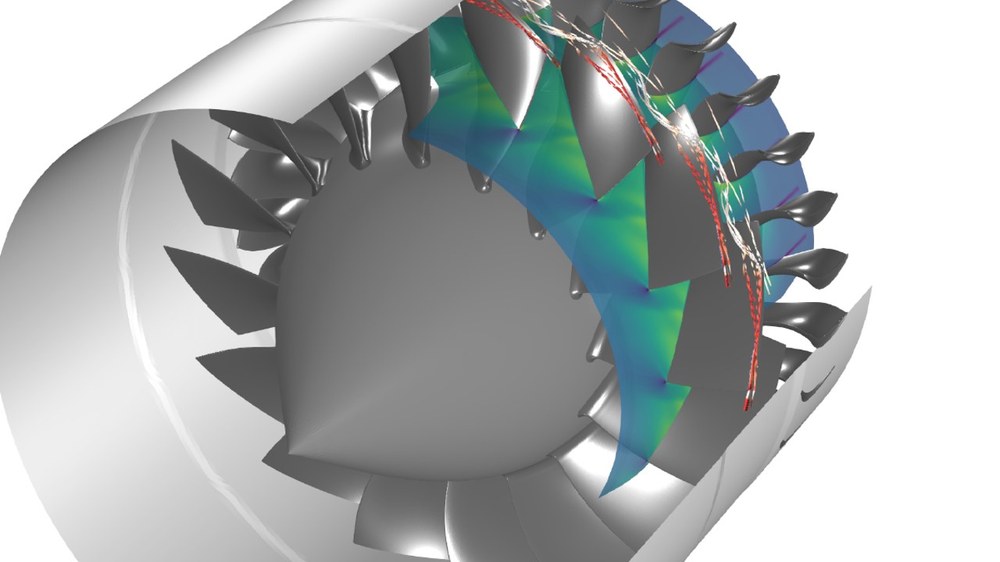CFD-Framework TRACE
The TRACE flow solver is used in turbomachinery research and industrial design of aircraft engines and stationary gas turbines, and is one of the core components of the virtual engine.

We develop highly optimised CFD methods for high-fidelity simulation and analysis of turbomachinery components in aircraft engines and stationary gas turbines. As a central component of the virtual engine, advanced numerical methods provide ever deeper insights into real-world flow processes.
We work on advanced approaches and developments using the CFD simulation suite TRACE (Turbomachinery Research Aerodynamic Computational Environment). TRACE is dedicated to innovative approaches, particularly in the areas of aeroelasticity, aeroacoustics, aerothermodynamics, scale-resolved turbulence and the use of supercomputers. Our aim is to provide an efficient research and design tool for simulation, adapted to the problems of turbomachinery, and to show which modules need to be used for reliable simulation.
The virtual engine is a computer representation of all the geometric and physical properties of an engine. Taking into account all disciplines such as aerodynamics, structural mechanics and thermodynamics, high-fidelity simulations can be used to answer questions about both the individual components and the interaction between all the components of an engine. The holistic view of the engine with all its interactions between systems makes it possible to make engines even more efficient, reliable and environmentally friendly.
Our partners are the national engine and gas turbine industry, which uses TRACE for design, and numerous universities, which use our software for their research activities. We work together in national and international projects on new challenges in the world of simulation.
Development of innovative simulation algorithms for custom turbomachinery applications
Customised turbomachinery simulation pre- and post-processing solutions
Artificial intelligence modelling and data mining
Multidisciplinary consideration of turbomachinery flows (aerodynamic, acoustic, thermal)
Designing software for massively parallel applications running on modern supercomputers
Performing high-resolution simulations in the virtual testbed to complement classical experiments
